Vascular Surgery in the best European hospitals
Here you will find most technologically advanced vascular surgery hospitals in the world
Focus of treatment:
- Abdominal aortic aneurysm
- Aortic dissection
- Carotid artery stenosis
- Deep vein thrombosis (DVT)
- Diabetic foot
- Extracranial carotid artery aneurysm
- Foot phlegmon
- Lower extremity arterial disease
- Lymphoedema
- Mesenteric artery atherosclerosis
- Renal artery aneurysm
- Renal artery stenosis
- Subclavian artery stenosis
- Thoracic aortic aneurysm
- Varicose veins
- Varicose veins with a trophic ulcer Show more
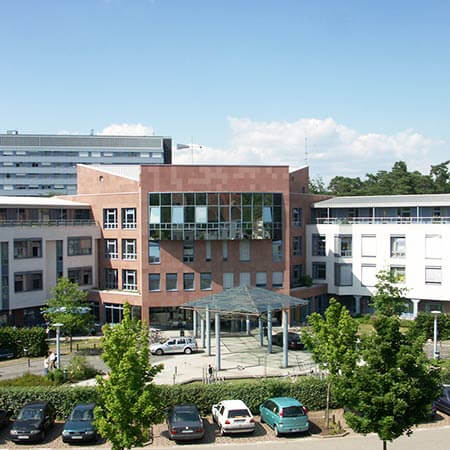
Department of General and Abdominal Surgery, Hernia Surgery, Endocrine, Hepatopancreatobiliary, Colorectal, Bariatric, Vascular and Pediatric Surgery
The Department of General and Abdominal Surgery, Hernia Surgery, Endocrine, Hepatopancreatobiliary, Colorectal, Bariatric, Vascular and Pediatric Surgery provides the full range of services in these medical fields. The highly qualified team of the department's surgeons specializes in performing operations of any degree of co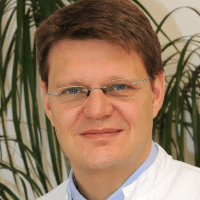

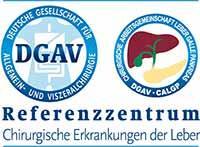
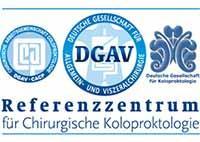

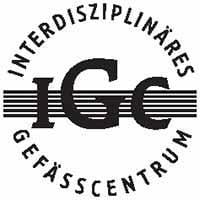

Innovation Center for Endovascular Medicine
The Innovation Center for Endovascular Medicine offers the full range of highly effective treatment for any diseases of the arteries and veins. Of particular interest is the endovascular treatment of aortic aneurysm, carotid stenosis, occlusive peripheral arterial disease and varicose veins. The center is equipped with two high-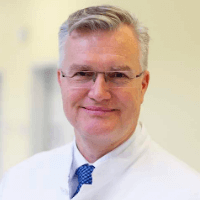




Department of Vascular Surgery
The Department of Vascular Surgery offers the full range of diagnostic services and surgical interventions for patients with diseases of the arteries, veins, and lymphatic vessels. The department's doctors have excellent skills and deep knowledge in the field of vascular surgery, ranging from complex interventions on the aor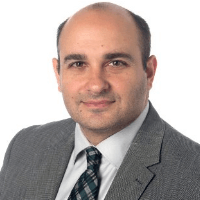




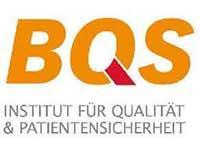
Vascular surgery is one of the fastest developing medical fields. Modern surgical interventions are minimally traumatic, provide proper blood supply to tissues, ensure a good aesthetic result, and have a low risk of complications and recurrence. Europe offers the very latest treatment methods for vascular diseases, such as varicose veins, arterial stenosis, aneurysms, lymphedema and other pathologies. Most pathologies are treated with endovascular methods (inside the vessels). In the case of open surgery, patients are provided with comprehensive care and rehabilitation.
Content
- What is vascular surgery
- What do vascular surgeons treat
- Diagnostics in vascular surgery
- How are operations performed in vascular surgery
- Treatment of varicose veins
- Why is it worth undergoing medical treatment abroad
- Treatment in Europe at an affordable price
What is vascular surgery
Vascular surgery is a medical field, which deals with the pathology of veins, arteries and lymphatic vessels. Vascular health experts perform operations on any vessels, from the largest (aorta, carotid artery, portal vein, etc.) to the smallest ones. Modern technologies allow the doctors to penetrate into the vessels and perform the necessary manipulations without large skin incisions.
What vascular surgeons can do:
- Remove the pathological vessel.
- Remove a blood clot, for example, from a deep vein of the lower limb, or even from an artery (in the heart, in the brain, etc.) in case of an emergency condition.
- Expand the area of the artery with a balloon catheter.
- Perform stent (frame) implantation inside the vessel to ensure normal blood flow in the case of a narrowing of the particular area.
- Make a bypass for the movement of blood to an organ, which is poorly supplied with blood.
- Perform prosthetic repair of the vessel: replace it with an artificial prosthesis.
- Make a blood vessel transplantation: transfer from another part of the body.
- Create additional pathways for lymph outflow.
Modern vascular surgery is impossible without microsurgery. It appeared at the end of the twentieth century and continues to develop in the twenty-first century. Now doctors can suture even the smallest vessels – not only blood vessels, but also lymph vessels. The replantation of parts separated from the body became possible: fingers, hands, etc. Today, this technique is an integral part of oral and maxillofacial surgery, plastic surgery, vascular surgery and transplantology.
One of the pinnacles of vascular surgery is internal organ transplantation. The transplantation of internal organs would not have been possible without suturing the blood vessels.
At the end of the twentieth century, when the information content of ultrasound examination increased, Doppler appeared, and the phlebological (vein surgery) field of vascular surgery was rapidly developing. Today, vascular surgeons in developed countries have practically ceased to use traumatic operations for varicose veins. Most cases of the disease, including the most severe ones, are currently cured with minimally invasive procedures: laser, radiofrequency, sclerotherapy. Even if vascular surgeons perform operations, they no longer make large skin incisions. The affected veins are incised at the beginning and at the end, and then removed with a special probe.
What do vascular surgeons treat
Vascular surgeons most often have to deal with the treatment of the following diseases in their clinical practice:
- Varicose veins.
- Thrombophlebitis.
- Deep vein thrombosis.
- Lymphedema – lymphatic edema, most often on the extremities.
- Carotid artery diseases (most often stenosis or aneurysm).
- Abdominal aortic aneurysms, thoracic aortic aneurysms.
- Vascular diseases of other large arteries: mesenteric, renal, subclavian.
- Chronic ischemia (insufficient blood supply) of the lower limbs caused by artery diseases (obliterating endarteritis, atherosclerosis of the vessels of the legs).
- Diabetic foot syndrome.
- Dissections, tears, traumatic injuries of large vessels.
Diagnostics in vascular surgery
Although many diseases in vascular surgery are diagnosed based on clinical symptoms, advances in this medical field would not have been possible without high-quality imaging of veins and arteries. Instrumental methods of examination allow the doctors to clarify the diagnosis and plan therapy. Today, doctors can determine the location of abnormal vessels, measure blood flow characteristics, and detect narrowing of arteries or dilated veins. They easily detect blood clots, aneurysms, dissections, vascular malformations, and other formations.
The main examination in vascular surgery is ultrasound. Its modern versions are capable of measuring blood flow velocity, obtaining the structure of the vascular network in 3D (volumetric) and 4D (time-based) modes. The sensors can be inserted into the vessels and receive accurate data on the structure of the wall of a large artery.
Another key test is angiography. It is performed during most endovascular (intravascular) procedures. The doctor injects a contrast agent into the arterial bed, and then assesses its movement using X-rays.
However, angiography can rarely be used prior to a medical manipulation, since it requires vascular catheterization. Instead, doctors use less invasive procedures: CT and MRI. They allow assessing the distribution of contrast in the vessels after injection of the drug into the ulnar vein.
How are operations performed in vascular surgery
Whenever possible, vascular surgeons abroad perform surgical interventions via endovascular access, namely through the blood vessels. With this technique, the doctors can perform embolization, place spirals to block the abnormal parts of the vessels, dilate the vessels with a balloon and implant stents.
In some cases, open surgery is required, for example, to remove an abdominal aortic aneurysm or cerebral vascular malformation. In such cases, vascular surgeons cooperate with other surgeons: abdominal, thoracic, neurosurgeons, etc.
Open interventions often have to be carried out on the vessels of the limbs. Arteries and veins of the legs are most often affected. Severe or complicated diseases cannot always be cured with minimally invasive techniques. After open surgical interventions, European specialists provide patients with comprehensive care, pain management, and prevention of complications.
Treatment of varicose veins
Varicose veins are one of the most common diseases on the planet and one of the key areas of vascular surgery. In the twentieth century, doctors performed quite traumatic interventions on the vessels to remove the dilated ones. However, minimally invasive techniques already appeared at the end of the twentieth century, and in the twenty-first century intravascular procedures are widely used.
Ultrasound-guided laser endocoagulation of veins was developed in 1999, and radiofrequency obliteration appeared in 2000. Now patients get rid of varicose veins quickly, do not require hospitalization, long-term care and rehabilitation. They feel the treatment process as a few injections along the affected vein, and after 2-3 days patients can return to active life. The treatment leaves no scars on the skin.
As for now, vascular surgery uses two directions in the treatment of varicose veins:
- Surgical treatment.
- Phlebosclerosing treatment.
In most cases, doctors prefer phlebosclerosing treatment. Its essence is that the vessel is closed rather than removed. Blood flow through it stops, which is equivalent to removing a vein.
Should surgical treatment be required, then European doctors prefer minimally invasive techniques. Stripping and phlebectomy are the most commonly used treatments.
Stripping is the removal of a vein through a short skin incision with a hook-shaped instrument. Previously, two incisions were required. However, then an even more sparing method appeared: cryostripping. The vein is frozen, it freezes to the probe, and can be removed even through a single incision.
Phlebectomy in its classical version is practically not used in Europe. It was replaced by a miniflebectomy. Now doctors no longer need 1 to 5 cm incisions, but a 1-2 mm incision is sufficient. After performing miniflebectomy, no stitches are even applied, since elastic bandaging of the limbs is enough.
Why is it worth undergoing medical treatment abroad
To undergo vascular disease treatment abroad, you can contact one of the European hospitals. They can provide the treatment of aneurysms, varicose veins, thrombosis and other pathologies. Foreign doctors successfully cope with the treatment of even serious diseases using the most advanced technologies.
There are several reasons for you to undergo medical treatment abroad:
- Minimally invasive techniques. While in countries with poorly developed medicine, most operations are still performed with an open surgical access, interventions in Europe are performed from the inside of blood vessels, without significant trauma, without the need for long-term care and rehabilitation.
- Phlebosclerosing techniques. Varicose veins are usually treated without surgery abroad. Surgical interventions are required only if such complications as thrombophlebitis develop. For most patients, sclerotherapy, laser or radiofrequency coagulation of veins is sufficient. It provides the same long-term results as surgery, but with minimal trauma and a low risk of complications.
- High-quality equipment. Thanks to state-of-the-art equipment, European hospitals perform accurate diagnostics and apply innovative treatment methods. Medicine in Europe is well funded, so doctors have everything they need to provide treatment of even the most severe pathologies.
- Innovation. It is in the developed countries that new methods of combating vascular diseases are being developed and introduced. These newly developed therapeutic procedures are more effective and safe, less painful and traumatic. They provide long-term results without complications.
- Experienced professionals. In developed countries, vascular surgeons are highly respected in the world of medicine. Many of these specialists have already performed thousands of surgical interventions.
- High-quality care and rehabilitation. After the operation, doctors carry out therapy aimed at preventing complications and provide adequate pain management in the postoperative period. You will receive high-quality care and treatment in a comfortable environment.
People often go abroad to treat serious or rare diseases. Many people visit Europe to avoid major surgery and to cure vascular pathology with the use of minimally invasive techniques.
Treatment in Europe at an affordable price
To undergo medical treatment in one of the European hospitals, please use the services of the Booking Health company. On our website, you can see the cost of treatment in Europe and compare prices in order to book a medical care program at a favorable price. Medical treatment in Europe will be easier and faster for you, and the cost of treatment will be lower.
You are welcome to leave your request on the Booking Health website. Our specialist will contact you and provide a free consultation on medical treatment in Europe. Booking Health will take care of the organization of your trip abroad. We will provide the following benefits for you:
- We will select a hospital for treatment in Europe, whose doctors specialize in the treatment of vascular diseases and achieve the best results.
- We will take care of the language barrier and we will help you establish communication with your attending physician.
- We will reduce the waiting time for the medical care program. You will undergo treatment on the most suitable dates.
- We will reduce the price. The cost of treatment in European hospitals will be lower due to the lack of overpricing and additional coefficients for foreign patients.
- We will take care of all organizational issues: we will draw up the documents, meet you abroad and take you to the hospital, book a hotel, provide interpreting services.
- We will prepare a medical care program and translate medical documents. You do not have to repeat the previously performed diagnostic procedures.
- We will help you keep in touch with the hospital after treatment in Europe.
- We will arrange additional examination and treatment in a European hospital, if required.
- We will buy medicines abroad and forward them to your native country.
The world's leading doctors will take care of your health. The Booking Health specialists will help reduce the cost of treatment, organize your trip, and you will only have to focus on restoring your health.
Authors:
This article was edited by medical experts, board-certified doctors Dr. Nadezhda Ivanisova, and Dr. Bohdan Mykhalniuk. For the treatment of the conditions referred to in the article, you must consult a doctor; the information in the article is not intended for self-medication!
Our editorial policy, which details our commitment to accuracy and transparency, is available here. Click this link to review our policies.

